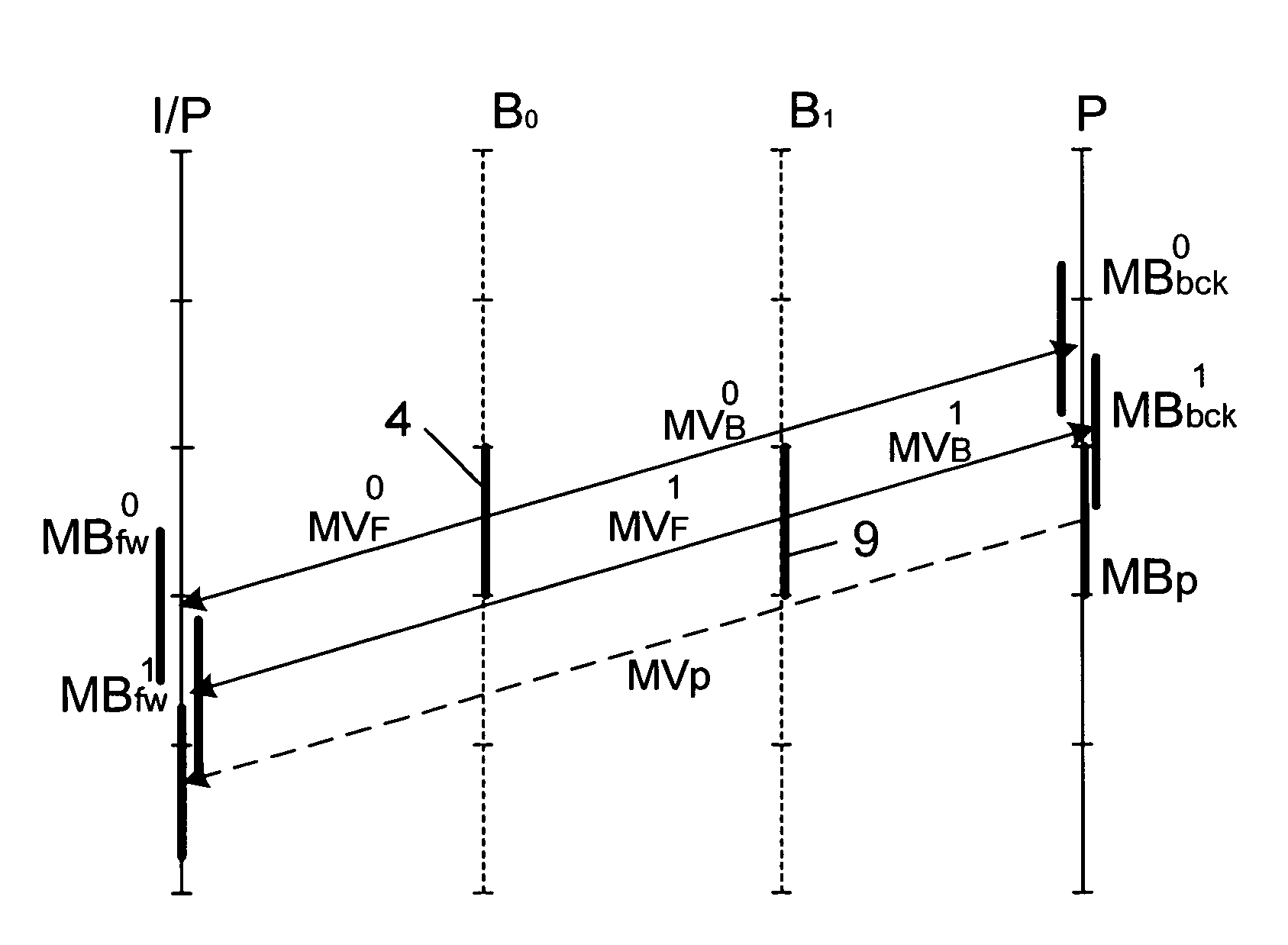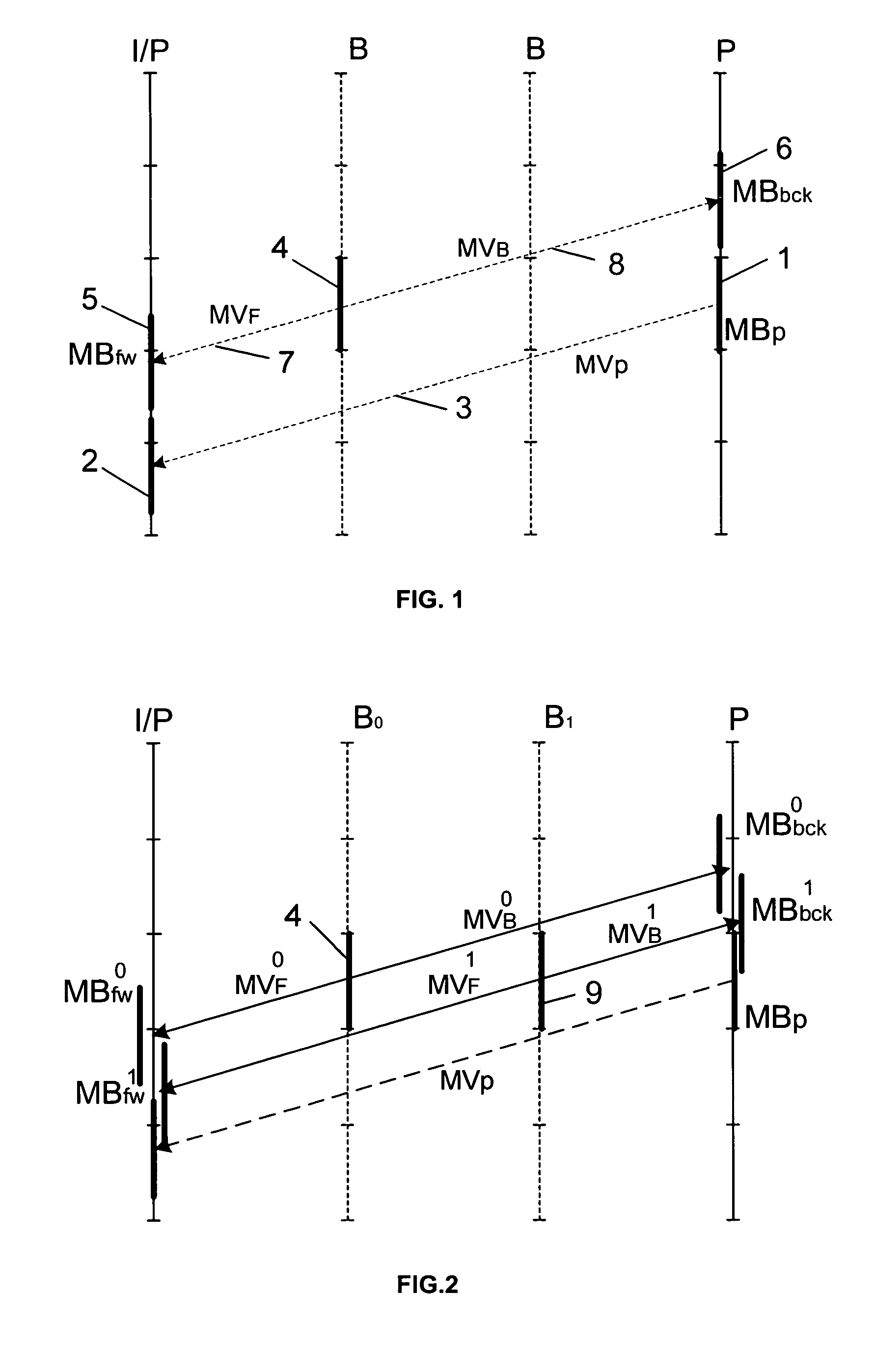Motion estimation or P-type images using direct mode prediction
a technology of motion estimation and p-type images, applied in the field ofdifferential coding of image blocks, can solve the problems of data compression and consequently not optimal for these images of bidirectional type, and achieve the effect of zero cos
- Summary
- Abstract
- Description
- Claims
- Application Information
AI Technical Summary
Benefits of technology
Problems solved by technology
Method used
Image
Examples
Embodiment Construction
[0038]FIG. 2 represents the prediction for a current block MBp of a P image as well as the predictions of direct type for the co-located blocks belonging to the images of type B, a first image called B0 and a second image called B1.
[0039]The terms previously used are indexed zero or one depending on whether they relate to the first image Bo or the second image B1.
[0040]Thus, as far as the image Bo is concerned, the motion vectors 7 and 8 are labelled MVF0 and MVB0 and respectively designate the predicted blocks MBfw0, MBbck0 for the reference images I / P and P.
[0041]The motion vectors corresponding to the image B1 are labelled MVF1 and MVB1 and respectively designate the predicted blocks MBfw1, MBbck1 for the reference images I / P and P.
[0042]In this context where two images of type B lie between the reference images I / P and P, on the basis of the calculation of the SAD, a conceivable criterion for selecting the motion vector MVp corresponding to the block of the P image becomes:
[0043...
PUM
 Login to View More
Login to View More Abstract
Description
Claims
Application Information
 Login to View More
Login to View More - R&D
- Intellectual Property
- Life Sciences
- Materials
- Tech Scout
- Unparalleled Data Quality
- Higher Quality Content
- 60% Fewer Hallucinations
Browse by: Latest US Patents, China's latest patents, Technical Efficacy Thesaurus, Application Domain, Technology Topic, Popular Technical Reports.
© 2025 PatSnap. All rights reserved.Legal|Privacy policy|Modern Slavery Act Transparency Statement|Sitemap|About US| Contact US: help@patsnap.com



